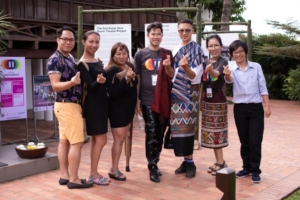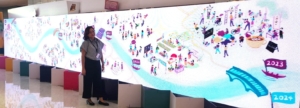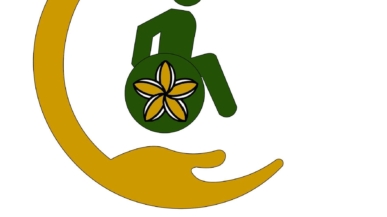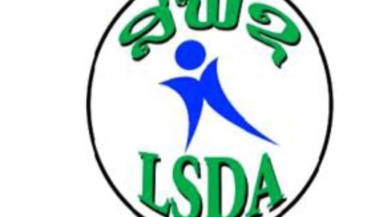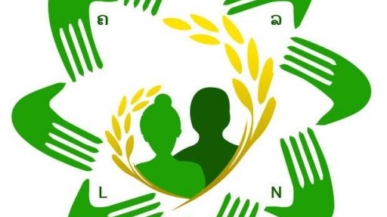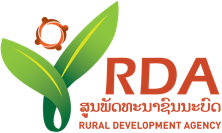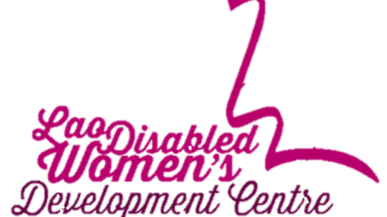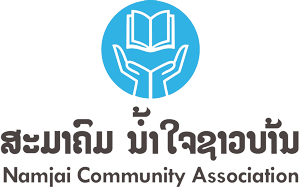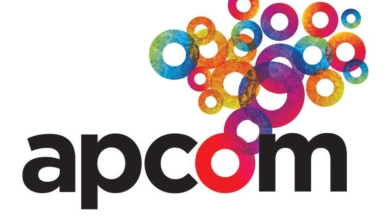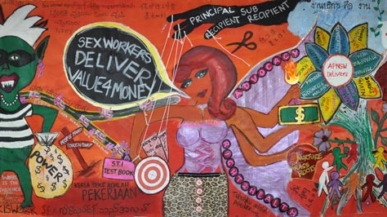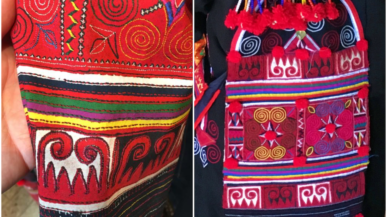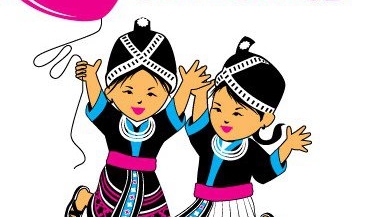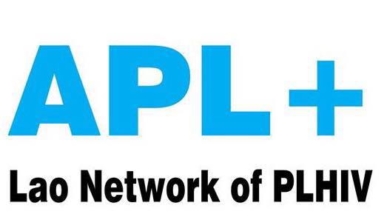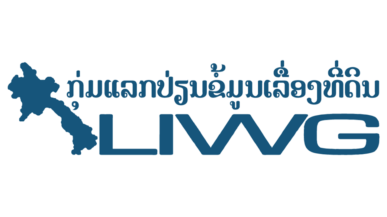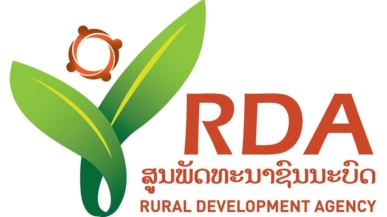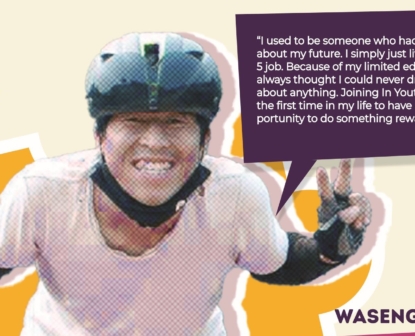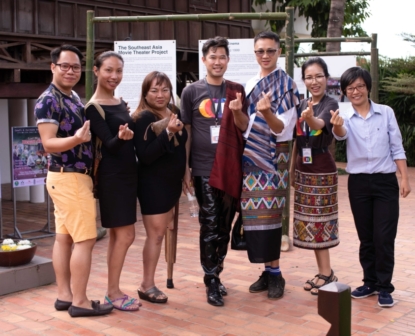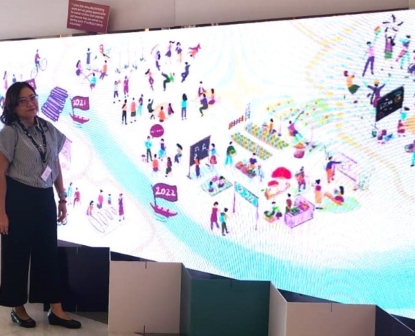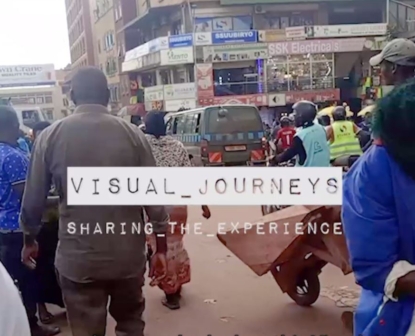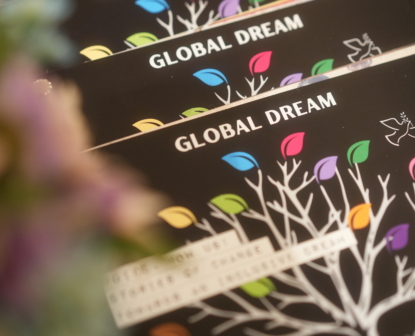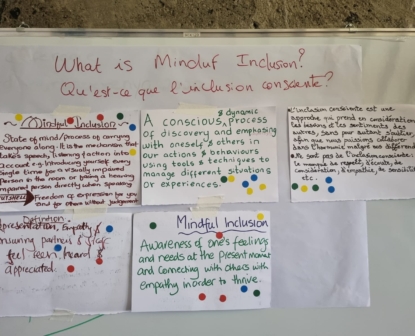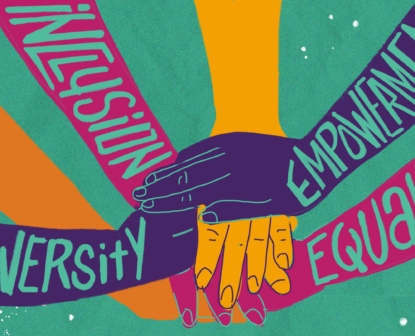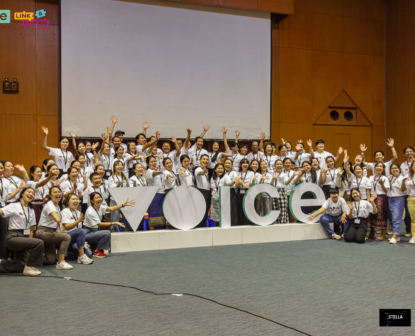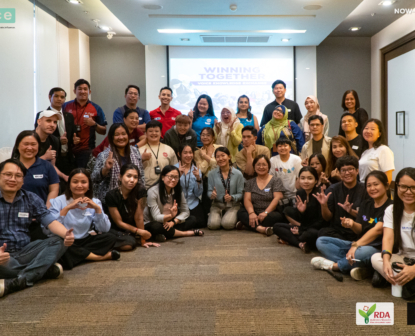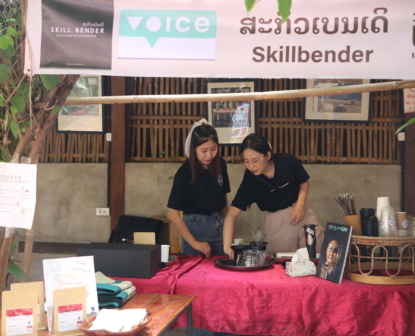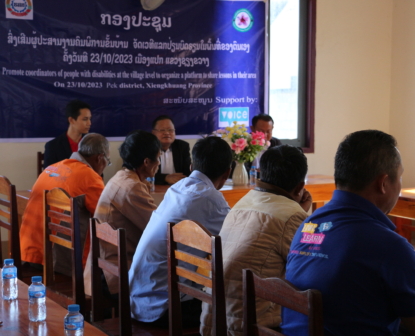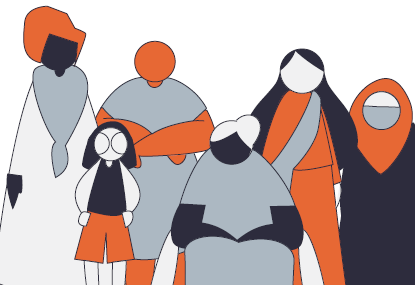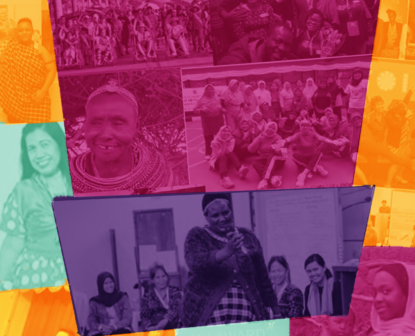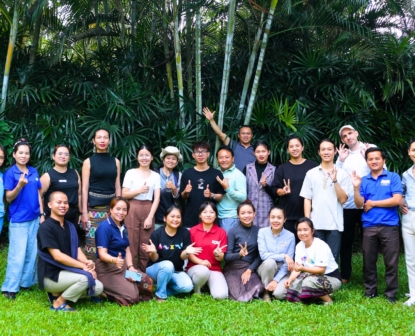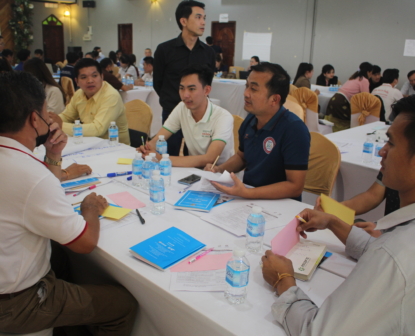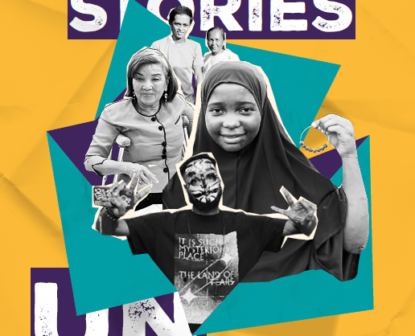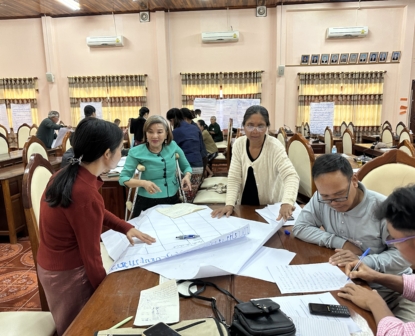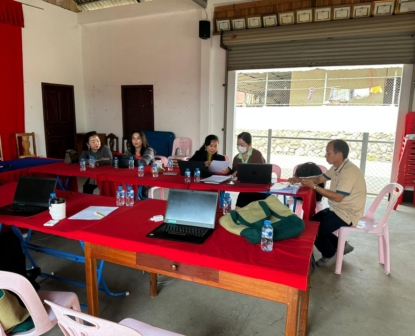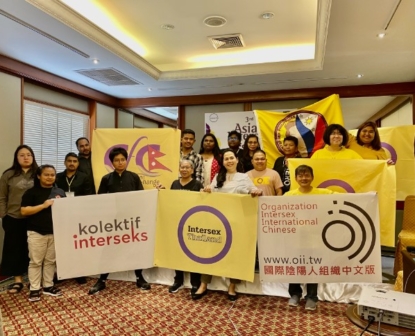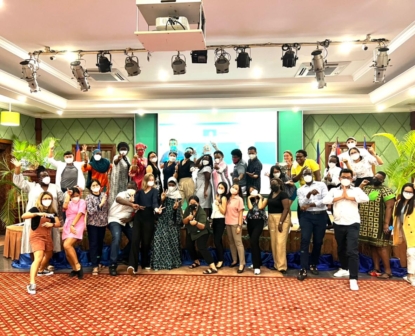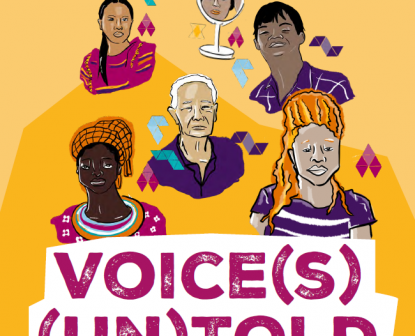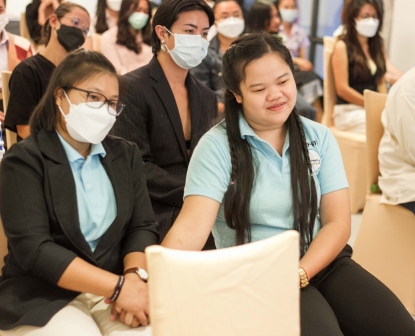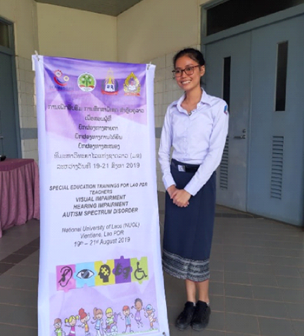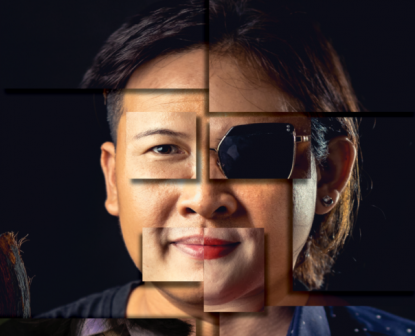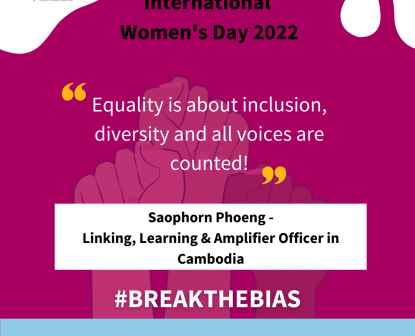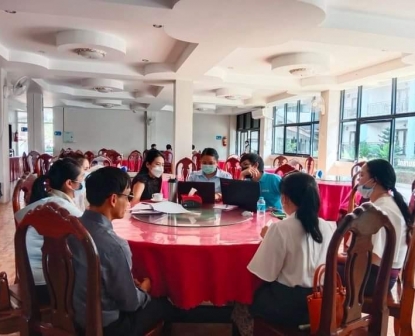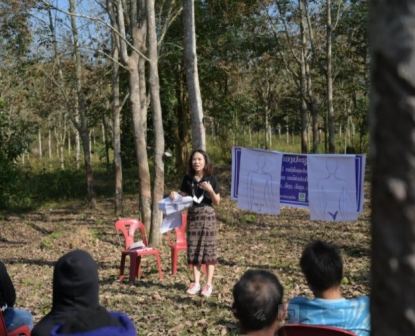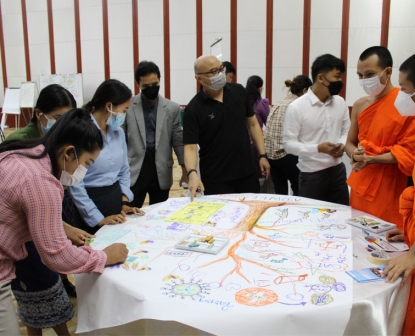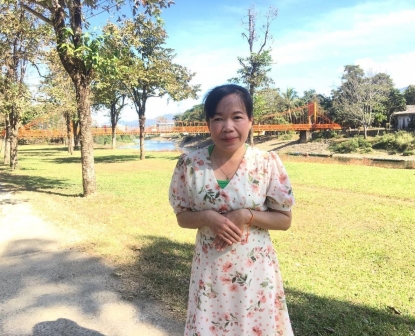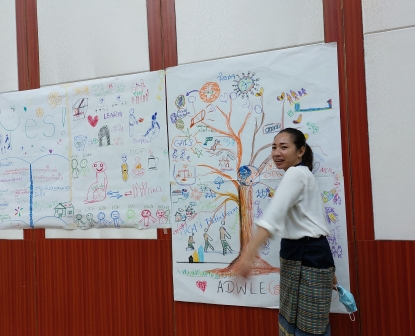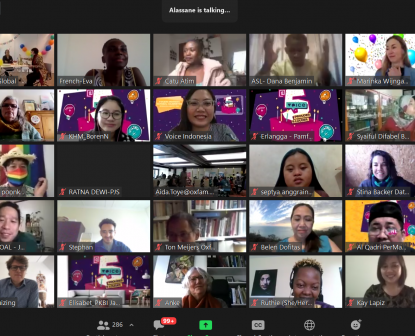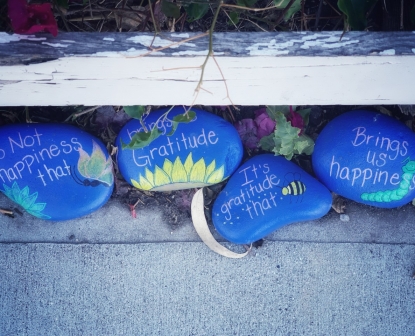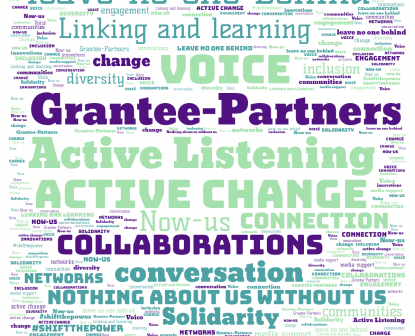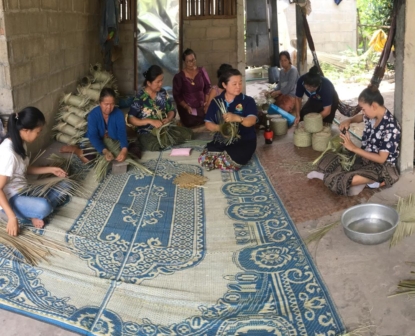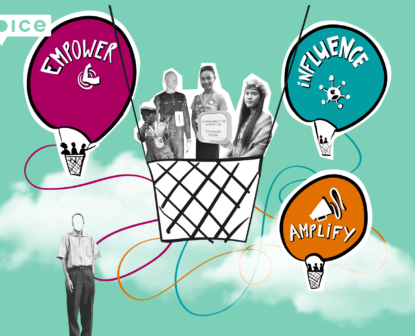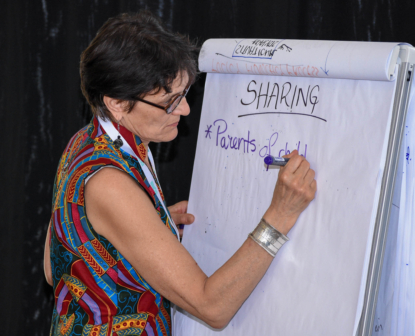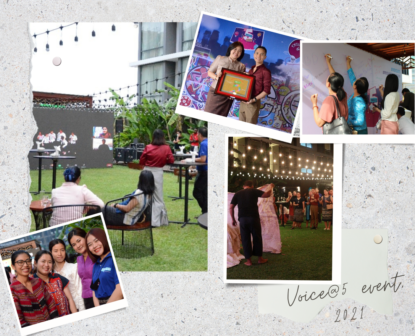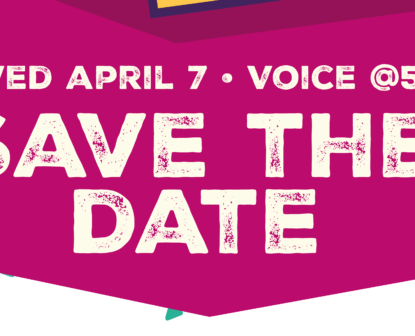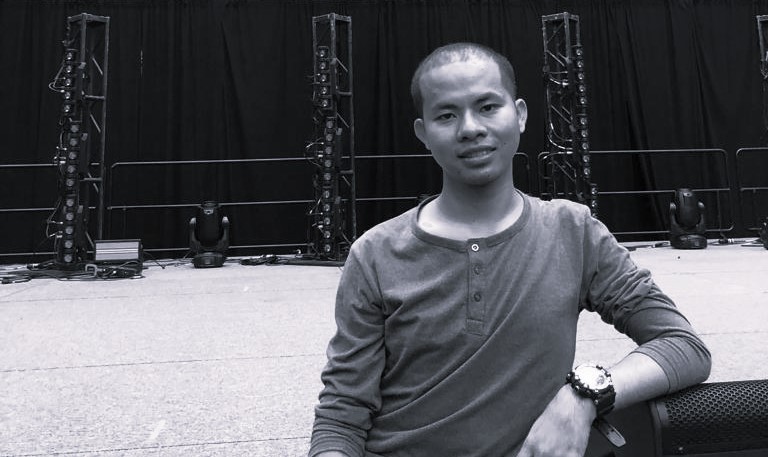
Laos
Grant distribution
Latest Voices
Open Calls for Proposals
 25 Empowerment grants
25 Empowerment grants  8 Influencing grants
8 Influencing grants  18 Innovate and learn grants
18 Innovate and learn grants  1 Sudden opportunity grants
1 Sudden opportunity grants -
No Open Calls at the moment in this country. Come back later!
-
The Lao People’s Democratic Republic (PDR), commonly known as Laos, is one of the four Southeast Asian countries where Voice is active. We live in a rapidly changing world – some changes may be for the better – others not so much. In order to continue to ground Voice in local lived realities, a country context analysis is organised every other year, engaging many stakeholders, grantees and rightsholders. The analysis is used to frame Calls for Proposals, to support the applications of grant-seekers and to advance the overall learnings .Below follows a summary of the exercise conducted in 2020, capturing the many views and perspectives of Laotians. The summary is structured by presenting the big picture and slowly but surely to zoom in on the voices and aspirations of the rightsholders and to zoom out again by sharing the way forward for Voice. This page can also be downloaded at the bottom of the page. A full report and previous versions can be availed to you upon request. Please contact laos@voice.global
Zooming out
The big picture
-
The Human Development Index is an index that combines data on life expectancy, education, and per capita income to rank countries. Between 2016 and 2018 Laos' HDI has only slightly increased, but remained the same in 2019. In 2019 Laos ranked 140 out of 189 countries.
-
The IHDI measures the human development cost of inequality, or the overall loss to human development due to inequality. The closer to 1 the more equal a society is. The IHDI can inform policies towards inequality reduction. Between 2016 and 2018 inequality in Laos was reduced marginally, but stagnated in 2019.
-
The GII is an inequality index, measuring the human development costs of gender inequality economically, health- and education-wise. The closer to 0 the better. Overall, gender inequality in Laos has only marginally improved since 2016.
-
According to the independent Civicus Monitor which started in 2016, civic space continues to be closed in Laos. Opportunities for change in practices and attitudes exist especially at local level, like Voice grantees have shown.
Behind the numbers
Since the 2020 context analysis update, countries around the world, including the Lao PDR, have experienced the COVID-19 pandemic and the impacts of the Ukraine war. This has led to restrictions in movements, tourism and trade, loss of employment for many, a fractured healthcare system, threats to food security, and significant economic stress. While these issues impact the entire population, they have more severe and long-term impacts on several rightsholder groups such as the elderly, ethnic minorities, People with Disabilities (PWDs), Lesbian Gay Bisexual Trans and Intersex (LGBTI) people, and women vulnerable to violence and exploitation. Seeking access, inclusion, and a voice in society, advocating for the equality of these rightsholder groups has become more difficult due to the challenging circumstances over the past two years.
Political shifts
In 2021 the Government of Lao PDR released its 9th Five-Year National Socio-Economic Development Plan (2021-2025). The plan sets out the direction for policies on socio-economic development, socio-cultural development, and on strengthening of the public governance and administration, national defence, public security and foreign affairs arenas. Achieving these breakthroughs is intended to help overcome the social and economic challenges facing Lao PDR and move it in a direction that is sustainable.
Policy reforms are based on the current five-year plan, but implementation of policies appears limited. However, there have been significant shifts in government policy on several human rights and equality issues over the last five years. This has been through the introduction of policies or legislation which enshrine these rights and standards. These policies or legislation include the Law for People with Disabilities (2018), the Law on Gender Equality (2019), and the Decree on Ethnicity (2020). It is still too early to determine the effectiveness of the implementation or enforcement of these laws.
Economic shifts
The economic growth of Lao PDR has been steadily slowing since 2013. The measures to control COVID-19 have had a further, severe impact on economic growth. This situation has been further exacerbated by the war in Ukraine. Inflation is increasing, reaching 12.8% (year-on-year) in May 2022 and the country is seeing rising prices for fuel, food and imported goods and challenges with global supply chains. Families have struggled with these increasing costs and reduced incomes from unemployment including those migrant workers who have returned from neighbouring countries. As a result, the World Bank has relisted Lao PDR as a country with high levels of institutional and social fragility.
With COVID-19 restrictions lifting, parts of the economy are slowly recovering from this downturn, although this varies across different industries. For example, the tourism industry has been slow to respond. Many rightsholders groups reported they are finding it difficult to gain employment and there are a significant number of households with a loss of income or revenues compared to pre-pandemic levels. There are concerns that these impacts will further entrench the existing economic gender gap in the Lao PDR.
Social shifts
Despite improvements over the previous 10 years, many rightsholder groups keep facing challenges with inequality, discrimination and access to education and employment opportunities. The COVID-19 restrictions and consequential economic downturn have resulted in significant social changes. Women, ethnic minorities, the elderly, and people with disabilities are at greatest risk to be pushed into poverty as there are limited safety nets for these groups, with barriers to access essential services. Reduced family incomes from lack of employment, slow business, and restricted movements have resulted in household financial stress. Without employment or businesses, low incomes may mean that children, particularly girls, are not able to afford education, making them vulnerable to human trafficking. Financial stresses can also limit health and rehabilitation and care for the elderly.
Since the establishment of the Non-profit Association (NPA) decree in 2009, there is an increasing number of Civil Society Organisations (CSOs) working with rightsholder groups on social and other issues. While these groups are closely monitored by the Government of Lao PDR, they play an important role in supporting social change and are increasingly acknowledged and supported by local authorities.
COVID-19 related shifts
Lao PDR avoided the worst health impacts of COVID-19 and was one of the last ASEAN countries to report a case, with limited community transmission over the first year of the pandemic. Nevertheless, the outbreaks in COVID-19 cases placed increased pressure on the already overwhelmed health system of the Lao PDR, impacting mainly female healthcare workers. This impact cascaded over into other parts of the heath care sector disrupting routine health care, mother and baby services, surgery, and regular vaccination programmes. The community struggled to access appropriate health care, clean water and sanitation particularly outside of urban areas. These issues have increased the likelihood of further spread of diseases, untreated illness, early mortality, and malnutrition amongst vulnerable rightsholder groups including children, people with disabilities, and the elderly.
The impact of COVID-19 lockdowns and restrictions on travel within and between countries on the economy resulted in extensive loss of livelihoods and high unemployment rates. This was driven by little to no tourism, closure of businesses and factories, and lack of movement of goods and services. A high number of migrant workers returned to their communities during this period, reducing family incomes and increasing unemployment levels.
Zooming in
Voices behind the picture
Key effects and emergent risks for rightsholders
While the issues outlined above impact the entire population, they have a particularly significant and long-term impact on rightsholder groups:
- The transmission of COVID-19 impacted the health of some elderly people, and the COVID-19 lockdown and social restrictions also had a major effect by increasing the isolation of elderly persons from each other and their families, and thereby, affecting their mental health and well-being.
- Education for youth, particularly for girls, often becomes one of the first cuts for decreasing family budgets. Some families might seek early marriage or employment for the youth rather than education. Lack of education makes it harder particularly for ethnic minority youth to improve their lives and make other contributions to society such as participation in decision-making.
- Many ethnic minority groups living in remote areas are still faced with challenges and remain one of the most disadvantaged rightsholder groups. The economic downturn, together with the COVID-19 restrictions and lack of tourism has had a significant impact on these communities. This has increased stress within families, with significant impacts on their physical and mental health.
- While there has been some social change leading to greater acceptance of LGBTI people and an increased access to health services and justice for them, many still face discrimination and stigma. There is also a continued lack of understanding of what it means to be an LGBTI person and what their needs are. Without adequate protections in place, LGBTI people risk further discrimination including through loss of employment opportunities. This can have a significant impact on their mental health and well-being.
- Some challenges faced by people with disabilities (PWDs) have been addressed by legislation and policy that enables and supports participation of PWDs in society. Challenges with delivery and implementation of these changes remain. Physical accessibility remains an issue, with many buildings lacking suitable design. Access to remote solutions such as telehealth also remains limited. The COVID-19 pandemic left this rightsholder group even more vulnerable, reducing incomes significantly. To make ends meet, people reduced their meals, or some stopped receiving health care.
- In recent years, the ability for women to have greater participation has increased, with gains made in representation and decision making at some levels of society. However, patriarchal cultural values still drive beliefs, family roles, and social norms around education, financial management and livelihoods. This embeds inequality in all facets of lives, widening the economic and social gaps between women and men. Without education, and a role in society, some women experience low self-esteem, and end up in low paying or high-risk jobs, making them vulnerable to exploitation. Increased financial pressures on the family can led to an increased risk of gender-based violence.
Aspirations and change agendas of rightsholders
Advocacy for equality has proven difficult in the challenging circumstances due to the pandemic. However, even in these difficult times, many rightsholders try to rely on their families and communities while seeking access, inclusion, and a voice in society:
- As with many rightsholder groups, the elderly would like to be active members of society, able to contribute socially, support themselves with income generating activities, and have easy access to health care. To manage the current risks, elderly people seek to have increased social protection through better access to social services and welfare. This could be achieved through greater capacity building and development and seed funding to enable purchase of equipment and starting materials. The establishment of an association for the elderly would help provide another pathway for communication, individual development, and support.
- The key aspiration for the youth is suitable employment so they can support themselves and contribute to their family. This could be achieved through job creation, quotas for employment of rightsholders, or support for small businesses. Building employment opportunities must be complemented by access to education both scholarly education as well as vocational training to make rightsholders job ready. Local learning centres, on the job training or apprenticeships for youth would assist in building their capacity in job related areas, while ensuring that education is more accessible to all youth, including those who drop out of the formal school system.
- Better education is seen as critical to improve the quality of life of ethnic minority groups, as it would open opportunities for their communities to access employment and create wealth. To achieve this, the school curriculum needs to be adapted, and teachers need to understand how to create the best learning environment for different ethnic groups and communities. This relies on culturally safe classrooms and schools, suitable education materials, and access to online resources to bridge the gap between remote and urban areas.
- Most People with Disabilities (PWDs) seek an enabling environment, where they can receive education, have meaningful employment and ease of access to public spaces as well as access to health care and other government services. Efforts to ensure accessibility need to consider all levels of ability, for example wheelchair-bound people as well as deaf, blind, and autistic people.
- Empowerment, and gender mainstreaming at all levels of planning and implementation is an important outcome for women. If women have opportunities to receive education, exercise confidence and hold decision making roles, they can become less vulnerable to exploitation. Education and economic development are key activities towards achieving this. This should focus on rural or ethnic groups that currently have less opportunities than women in urban areas.
Overall, equality with other parts of Lao society remains a priority aspiration for most rightsholder groups. This could in part be achieved through special measures and specific development plans. Greater representation in the National Assembly can be achieved with a more educated community. This would provide the groups with a role in decision-making over policies, strategies and legislation which impact or nurture them as rightsholder groups in Lao PDR.
Zooming out
Fostering change
There have been significant adverse impacts on all five rightsholder groups over recent years, resulting in financial stress, limited mobility, greater risk and challenging health care and education access. Although there are many common threads that the Voice programme could consider in further design and implementation and opportunities for intersectional activities, the solutions for each may be different. Responses should be tailored recognising the different needs both between each rightsholder group but also within each group.
Strategy 1: Build opportunities for rightsholders groups to improve their situation
While limited accessibility and opportunities for rightsholders groups became a barrier during the implementation of COVID-19 restrictions, it is unlikely to ease in the current economic situation. Access to appropriate education, vocational training, information, job opportunities, and health care would help improve the financial situation of individuals, boost their recognition and participation in society, and improve their physical and mental well-being. Strategies for this may include:
- Creating equal access to opportunities for education and training for rightsholder groups.
- Encouraging and creating an enabling environment for ethnic minority youth, for example based on peer-to-peer learning and sharing experiences.
- Establishing access to employment and income generation activities for rightsholder groups, for example for elderly people to be supported in continuing to utilise their skills and knowledge and contribute to the development of Lao society.
- Enabling intersectional opportunities, such as mentoring (between elderly and youth), buddy systems, training, and marketing of produce.
- Promoting gender equity and supporting women among all rightsholder groups to increase their role in decision making and economic development.
- Fostering relationships with government stakeholders as well as local and international businesses operating in Lao PDR to open employment opportunities and reduce discrimination against rightsholders groups, particularly people with disabilities, people with limited education, and LGBTI people.
Strategy 2: Give voice to those who need it through innovative approaches targeting access to resources and awareness-raising
The previous two years have in many ways exacerbated the risks to rightsholders groups. Many rightsholders have described feeling isolated, vulnerable, unsupported, not part of society or unable to access the resources needed. Voice could increase its focus and seek innovative approaches to address this. This may include:
- Supporting online capabilities tailored to meet the needs of each rightsholder group. For example, forums, radio, apps, promotional materials on social media or easy to use information (spoken and written) as well as training on media.
- Increasing broader community understanding of the different rightsholder groups to improve social awareness and acceptance, with activities that may include campaigns, exhibitions of skills or produce, etc.
- Building the capacities of families, carers, healthcare workers, and teachers of rightsholder groups in caring and supporting rightsholders in society, based on targeted awareness approaches.
-
-
Grants

-
Grantee
![Xonphao Handicrafts Fashion Show Innovation]()
Xonphao Handicrafts Fashion Show Innovation
Xonphao Working Group for People with Disability (XWG) -
Grantee
![Coffee making skill for everyone]()
Coffee making skill for everyone
Skilbender Studio and Namjai Community Association (NCA) as fiscal host -
Grantee
![Improve access to agricultural business of People with Disabilities]()
Improve access to agricultural business of People with Disabilities
Lao Farmer Network (LFN) and CLICK (host organisation) -
Grantee
![Strengthening and Equality of People]()
Strengthening and Equality of People
People with Disabilities Development Association Xiengkhouang -
Grantee
![Empowering through GALS]()
Empowering through GALS
Bamboo and Non-Timber Forest Products Development Association (BNDA) - Call for Proposal
Nothing About Us Without Us! Awards Laos: Laos V-21193-LA-IL
closing date: 31 Dec 2021Closed -
Grantee
![DEAFLoud]()
DEAFLoud
Lao Disabled Women’s Development Centre host for Psycho-Education & Applied Research Center for the Deaf (PARD Vietnam) - Call for Proposal
Let’s Get Loud! Laos Empowerment Grant V-21178-LA-EM
closing date: 07 Jul 2021Closed - Call for Proposal
Voice(s) Connected & Amplified in Laos: Linking & Learning Facilitation V-21165-LA-IL
closing date: 19 Feb 2021Closed - Call for Proposal
Celebrating Inclusion: Laos Innovate and Learn Grant V-20157-LA-IL
closing date: 29 Jan 2021Closed - Call for Proposal
Coming Together, Moving Forever!: Global Influencing Grants V-20152-XG-IF
closing date: 15 Jan 2021Closed - Call for Proposal
It’s Still Our Turn To Talk! Global Influencing Grant V-20151-XG-IF
closing date: 15 Dec 2020Closed - Call for Proposal
ທຶນສົ່ງເສີມວຽກງານການຂໍການສະຫນັບສະຫນູນ: Laos Influencing Grants V-20143-LA-IF
closing date: 04 Dec 2020Closed -
Grantee
![Securing Cultural Intellectual Property Rights for the Oma in Laos]()
Securing Cultural Intellectual Property Rights for the Oma in Laos
Traditional Arts and Ethnology Centre (TAEC) -
Grantee
![Capacity strengthening for the blind]()
Capacity strengthening for the blind
Aid for Children with Disability Association (ACDA) host for Disability Service Centre (DSC) -
Grantee
![SWAC: Scale up the capacity of women living with HIV/AIDS and awareness campaign for risk communities]()
SWAC: Scale up the capacity of women living with HIV/AIDS and awareness campaign for risk communities
Association of People Living with HIV/AIDS (APLHIV) -
Grantee
![Empowering KADO ethnic women]()
Empowering KADO ethnic women
Association of People Living with HIV/AIDS host of informal group Takienglao -
Grantee
![Strengthening the Equality of People with Disabilities and Community Development (SEPCoD)]()
Strengthening the Equality of People with Disabilities and Community Development (SEPCoD)
Lao Disabled People's Association (LDPA), Xiengkhouang Province -
Grantee
![Empowering ethnic youth to become agents of change in protecting land rights]()
Empowering ethnic youth to become agents of change in protecting land rights
Land Information Working Group -
Grantee
![Influencing the perceptions on Sexual Health and Gender Norms through Entertainment Education]()
Influencing the perceptions on Sexual Health and Gender Norms through Entertainment Education
Rural Development Agency (RDA) - Call for Proposal
Stronger Together! Global Sudden Opportunity Grants -V-19114-XG-SO
closing date: 31 Dec 2019Closed
 Grantee
Grantee![Xonphao Handicrafts Fashion Show Innovation]()
Xonphao Handicrafts Fashion Show Innovation
Xonphao Working Group for People with Disability (XWG)Grantee![Coffee making skill for everyone]()
Coffee making skill for everyone
Skilbender Studio and Namjai Community Association (NCA) as fiscal hostGrantee![Improve access to agricultural business of People with Disabilities]()
Improve access to agricultural business of People with Disabilities
Lao Farmer Network (LFN) and CLICK (host organisation)Grantee![Strengthening and Equality of People]()
Strengthening and Equality of People
People with Disabilities Development Association XiengkhouangGrantee![Empowering through GALS]()
Empowering through GALS
Bamboo and Non-Timber Forest Products Development Association (BNDA)Call for ProposalNothing About Us Without Us! Awards Laos: Laos V-21193-LA-IL
closing date: 31 Dec 2021ClosedGrantee![DEAFLoud]()
DEAFLoud
Lao Disabled Women’s Development Centre host for Psycho-Education & Applied Research Center for the Deaf (PARD Vietnam)Call for ProposalLet’s Get Loud! Laos Empowerment Grant V-21178-LA-EM
closing date: 07 Jul 2021ClosedCall for ProposalVoice(s) Connected & Amplified in Laos: Linking & Learning Facilitation V-21165-LA-IL
closing date: 19 Feb 2021ClosedCall for ProposalCelebrating Inclusion: Laos Innovate and Learn Grant V-20157-LA-IL
closing date: 29 Jan 2021ClosedCall for ProposalComing Together, Moving Forever!: Global Influencing Grants V-20152-XG-IF
closing date: 15 Jan 2021ClosedCall for ProposalIt’s Still Our Turn To Talk! Global Influencing Grant V-20151-XG-IF
closing date: 15 Dec 2020ClosedCall for Proposalທຶນສົ່ງເສີມວຽກງານການຂໍການສະຫນັບສະຫນູນ: Laos Influencing Grants V-20143-LA-IF
closing date: 04 Dec 2020ClosedGrantee![Securing Cultural Intellectual Property Rights for the Oma in Laos]()
Securing Cultural Intellectual Property Rights for the Oma in Laos
Traditional Arts and Ethnology Centre (TAEC)Grantee![Capacity strengthening for the blind]()
Capacity strengthening for the blind
Aid for Children with Disability Association (ACDA) host for Disability Service Centre (DSC)Grantee![SWAC: Scale up the capacity of women living with HIV/AIDS and awareness campaign for risk communities]()
SWAC: Scale up the capacity of women living with HIV/AIDS and awareness campaign for risk communities
Association of People Living with HIV/AIDS (APLHIV)Grantee![Empowering KADO ethnic women]()
Empowering KADO ethnic women
Association of People Living with HIV/AIDS host of informal group TakienglaoGrantee![Strengthening the Equality of People with Disabilities and Community Development (SEPCoD)]()
Strengthening the Equality of People with Disabilities and Community Development (SEPCoD)
Lao Disabled People's Association (LDPA), Xiengkhouang ProvinceGrantee![Empowering ethnic youth to become agents of change in protecting land rights]()
Empowering ethnic youth to become agents of change in protecting land rights
Land Information Working GroupGrantee![Influencing the perceptions on Sexual Health and Gender Norms through Entertainment Education]()
Influencing the perceptions on Sexual Health and Gender Norms through Entertainment Education
Rural Development Agency (RDA)Call for ProposalStronger Together! Global Sudden Opportunity Grants -V-19114-XG-SO
closing date: 31 Dec 2019ClosedCall for ProposalTWINNING IS WINNING! Regional Empowerment Grant -V-19113-XG-EM
closing date: 01 Aug 2019Closed -
Link + Learn


Voice Laos Oxfam in Laos 98/8 Sithong Rd Vientiane Capital, Lao PDR Tel: +856 21 264 224 laos@voice.global


